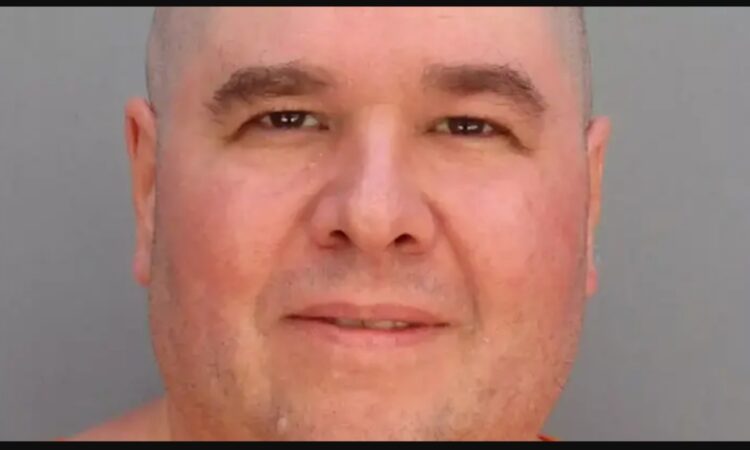
More than three decades ago, Phoenix, Arizona was shaken by the brutal murders of four members of the Luna family, crimes committed by a man named Richard Djerf. Now 55 years old, Djerf has been living on death row for nearly thirty years, and his execution by lethal injection has been scheduled for October 17.
The events go back to 1993, when Djerf grew obsessed with revenge after accusing Albert Luna Jr. of stealing from his apartment. Instead of targeting him directly, Djerf went after the entire Luna household in a way that was both cruel and calculated.
Disguising his true intentions, he entered the family’s home by pretending to deliver flowers. Once inside, he unleashed a horrifying attack. He sexually assaulted 18-year-old Rochelle before cutting her throat.
He then turned on her father, Albert Sr., beating him with a metal baseball bat, stabbing him, and shooting him. Patricia, Albert’s wife, was also killed. The youngest victims, five-year-old Damien and his older sister Rochelle, were tied to kitchen chairs and shot at close range. In just a short span of time, an entire family was wiped out in one of the most disturbing crimes Arizona had ever seen.
Djerf later pleaded guilty to four counts of murder. Prosecutors argued that he was consumed by rage and had turned his anger toward innocent people. He was sentenced to death in 1996, and since then, he has been living under the shadow of execution, spending decades thinking about what he did.
As his execution date nears, Djerf has released a handwritten statement. In the note, he expressed regret for the pain he caused and wrote that if he could not find a reason to spare his own life, no one else would have a reason to do so either. He went on to say that he hoped his death might bring some level of peace to those who had suffered because of his actions. He also mentioned Albert Luna Jr., stressing that the man he originally blamed was never at fault for what happened, and that nothing that occurred should ever have been tied to him.
Arizona, where executions are rare but still carried out, last put someone to death in March 2023, when inmate Aaron Brian Gunches was executed. With Djerf’s upcoming death, the number of people still on death row in the state remains high, with around 108 inmates waiting for their sentences to be carried out.
In another recent case highlighting America’s death penalty system, Florida executed a man named David Joseph Pittman just days ago. Pittman had been convicted in the early 1990s for killing his ex-wife and her parents. Unlike Djerf, who confessed and apologized, Pittman never admitted guilt. Even in his last words, as the lethal injection drugs were about to be administered, he declared that he was innocent and that those watching were witnessing the state kill a man who had committed no crime.
His legal team had fought to stop the execution, arguing that Pittman was intellectually disabled, pointing to an IQ score of 70, which according to the American Psychiatric Association falls into the range of intellectual disability. They argued that executing him would go against the Eighth Amendment of the U.S. Constitution, which prohibits cruel and unusual punishment. Despite these appeals, the execution went ahead, closing a case that had lasted more than thirty years and leaving lingering questions about guilt, justice, and the limits of the death penalty.
Both the story of Richard Djerf in Arizona and David Pittman in Florida highlight not only the horror of violent crimes and the long shadow they cast over families and communities, but also the way the American justice system wrestles with punishment, remorse, innocence claims, and the moral weight of the death penalty.




